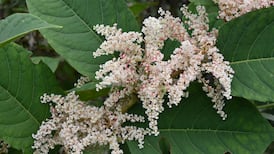Do you know your fiddle-leaf fig from your pepperonia? Your ZZ from your Swiss cheese? Do you talk to your houseplants like a proud parent cooing at a baby, and post adoring shots of them online using hashtags like #plantparents #plantmom #plantparentjourney?
When you go on holiday do you agonise – agonise – about finding someone to properly look after them in your absence? Do you occasionally – come on, admit it – secretly fantasise about owning your very own giant glasshouse so you can fill it with outsized banana plants, scrambling begonias and trailing tradescantias, scented orchids and elephants ears?
If so then you’re part of a rapidly-growing worldwide demographic that helped the global value of houseplant sales – a multibillion dollar industry – rocket in recent years.
Houseplants are the perfect portable solution to the interior design conundrum facing anyone who rents rather than owns
It's no secret, of course, that houseplants are particularly huge with younger generations of gardeners, their stratospheric surge in popularity fuelled by social media apps such as Pinterest, Instagram and TikTok that have highlighted the vast range of photogenic species suitable for cultivating indoors, as well as the charm and atmosphere that they instantly bring to any living space.
Their appeal to green-fingered plant-lovers aside, houseplants are also the perfect portable solution to the interior design conundrum facing anyone who rents rather than owns, a rewarding investment of time, love and money that you can actually take with you when you move on.
For those who don’t consider themselves in any way green-fingered, modern technology has also made the business of caring for these plants a whole lot easier. Rather than rifling through the pages of a dog-eared copy of Hessayon’s The House Plant Expert, today’s plant owners are far more likely to be found using one of the various apps available, the best of which (see below) are the equivalent of horticultural agony aunts that can do everything from accurately identifying plants to creating maintenance schedules tailored to each variety’s needs.
The same apps can even make specific plant recommendations based on the quality/intensity of available natural light in any particular room.
The web has also revolutionised houseplants’ availability, dramatically increasing the range of species and varieties accessible to us, while allowing niche suppliers to develop thriving online businesses that rely on a community of appreciative customers whom traditional bricks-and-mortar shop-owners can only dream of.

A worldwide community of houseplantaholics can now instantly and easily connect, sharing information (not always 100 per cent reliable, it must be said) on everything from care and propagation to where to source seed, cuttings, divisions and how to get your hands on the latest must-have rarity.
Searching for that rare philodendron with the golden, speckled leaves? That variegated alocasia? It can be found, and fast.
Propagating your own houseplants from seed, cuttings and trading plants with like-minded houseplantaholics are all part of the solution
As is true of any global industry, inevitably there are also some downsides. Concerns about sustainability, for example, in terms of how most plants are propagated in heated commercial glasshouses using finite/ non-renewable resources such as water, peat and oil and environmentally harmful fungicides and pesticides.
Concerns too about their packaging, using plastic pots and wrappings. There are also worries that the pursuit of some rare species could end up endangering vulnerable plant communities, plus dismay at the fact that certain kinds of houseplants are intentionally produced as short-lived, throwaway items to be flung in the bin once they’ve served their brief purpose.
Propagating your own houseplants from seed, cuttings and divisions and trading plants with like-minded houseplantaholics are all part of the solution to this problem. So is buying from a reputable supplier who can provide healthy, well-cared-for plants that have been sourced from a reputable grower.
For the same reasons of sustainability, try to use a non-peat-based compost and an organic fertiliser when it comes to potting on your houseplants. Environmentally-harmful, synthetic fertilisers, pesticides, and fungicides should also be avoided.

So should “leaf shine” products that just clog up leaf pores. Instead concentrate on supporting plant health by giving your houseplants their preferred growing conditions and ensuring that they’re adequately fed and watered (just like humans, a stressed, poorly-fed plant is much more vulnerable to illness).
When required natural products such as neem oil (an extract of the neem tree, available from clay.ie) and Uncle Tom’s Natural Soft Soap (available from fruithillfarm.com) can be used to prevent/control infestations of common houseplant pests such as mealy bugs, red spider mite, thrips and scale.
Routinely cleaning down the foliage (don’t forget the undersides of the leaves) using a damp, clean cloth or gently showering the leaves with tepid water will also help to keep plants healthy.
For the same reasons it’s best to quarantine new houseplants for a few weeks after you first get them so that you can keep a watchful eye on them for any pests and diseases they might possibly be hosting.
While you’re at it keep an eye out for the sort of naturally-occurring plant mutations – for example, atypical leaf colour, unusual leaf shape – that modern planthunters adore and that might by a wild streak of luck make your humble little houseplant the #nextbigthing…
Because being a superstar in the fast-moving, fickle world of houseplants is all about standing out from the crowd.
10 specialist Irish houseplant suppliers that will deliver to your door
- Wicklow-based Epoch Green, @epochgreen, epochgreen.ie
- Dublin-based Clay, @clayplants, clayplants.ie
- Cork-based Verd Houseplants, @verd_houseplants, verd.ie
- Dublin-based Hopeless Botanics, @hopelessbotanics, hopelessbotanics.ie
- Dublin-based Urban Plant Life, @plantlifedublin, plantlife.ie
- Glas Plants, @glasplants, glasplants.ie
- Dublin-based Nicely Plant, @nicelyplant.ie, nicelyplant.ie
- Cork-based Prickly Plants, @pricklyplants.ie, pricklyplants.ie
- Dublin-based Plantae, @plantae, plantae.ie
- Dublin-based Plant Store, @plantstoreireland, plantstore.ie
Two clever apps to help you care for your houseplants
Planta (getplanta.com): A really popular app with a huge database of plants, this offers lots of useful features including a care and watering schedule, a scanner for plant identification (very useful if you've lost labels or have been given an unnamed plant as a present), a light meter that gauges your room's suitability for any particular plant by measuring the strength and intensity of available natural light, plus loads of hands-on tips on propagation and plant selection. The only caveat is to use most of these features you'll need to pay for the premium version
Vera by Bloomscape (bloomscape.com) can also create a care and maintenance schedule tailored to your plant collection, allows you to create plant profiles, and gives expert care tips plus advice on troubleshooting pests, diseases etc.
This week in the garden
Finish pruning fruit bushes and fruit trees, choosing a dry day to do this and making sure to use a clean sharp secateurs and/or loppers. Autumn-fruiting raspberries should also be pruned at this time of year. To encourage production of a staggered harvest, cut half the canes down to ground level and the other half back by half.
February is the time of year to prune certain kinds of clematis including varieties belonging to Group 2 (early-large-flowered types that flower on last year's growth) which should be lightly pruned. Varieties belonging to Group 3 (late large-flowered hybrids as well as the viticella, texensis and orientalis types) that flower on new growth should also be pruned at this time of year by cutting their stems back hard to 45cm above ground and to just above a pair of strong buds. If you're not sure which group your clematis variety belongs to check out rhs.org.uk
Dates for your diary
Until the end of February, 'Snowdrop Month in Carlow', a month-long celebration of the county's snowdrop gardens at Altamont, Huntington Castle, Burtown and Shankill Castle, see carlowtourism.com for details of opening times.
Wednesday February 16th (7.30pm-9pm) 'Creating Beautiful Borders', a Zoom talk by Jack Willgoss of the UK-based specialist nursery Wildegoose Perennials on behalf of the RHSI, see rhsi.ie.
February 26th, the 2022 GLDA Seminar ‘PLAN Trees, PLANT Trees, PLANET Trees; Creative Design with Trees in our Landscape, Streetscape and Gardens’ takes place online as a livestreamed event with a range of guest speakers, tickets €45-€70 can be booked online at glda.ie


















